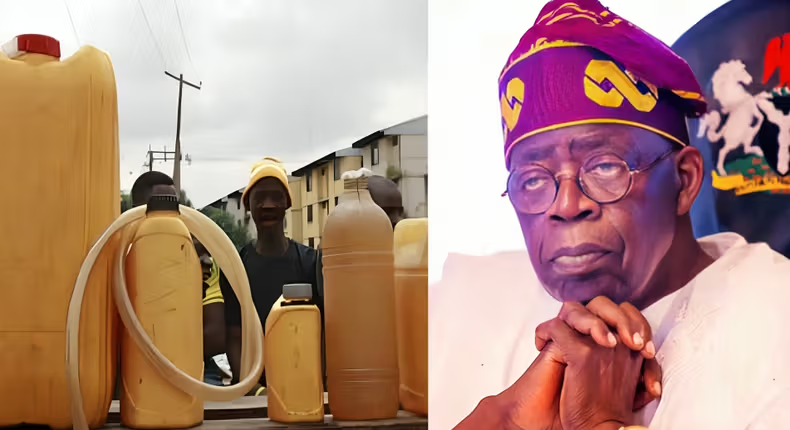2 mn read
The fuel subsidy debate remains a hot topic in Nigeria as the country grapples with a persistent fuel crisis. Despite President Bola Tinubu’s 2023 removal of the fuel subsidy, Nigerians are facing ongoing fuel shortages and exorbitant prices, leaving many dependent on black market sellers.
Key Points:
- Fuel Prices and Crisis: After the subsidy removal, fuel prices surged from ₦185 per litre to over ₦600 within a week, leading to widespread panic buying and fuel scarcity. The crisis has forced many Nigerians to rely on black market sellers, who sell at inflated prices and often adulterate the fuel.
- Government Stance: The Nigerian National Petroleum Company Limited (NNPCL) and government officials have repeatedly denied the existence of a fuel subsidy. NNPCL’s Group CEO, Mele Kyari, and Chief Financial Officer, Alhaji Umar Ajiya, have stated that no subsidies are being paid, and any discrepancy in fuel pricing is termed a “shortfall” rather than a subsidy.
- Contradicting Views: The Independent Petroleum Marketers Association of Nigeria (IPMAN) disputes these claims, accusing the government of disguising ongoing subsidies. IPMAN’s national secretary, John Kekeocha, argues that the real cost of petrol should be around ₦1,000 per litre, considering current exchange rates, suggesting that the government is indeed subsidizing the product covertly.
- Market Impact: The crisis has led to increased activity among street fuel peddlers, who take advantage of the situation by selling petrol at inflated prices and often mixing it with other substances that damage vehicle engines. Recent measures by the Nigerian Midstream and Downstream Petroleum Regulatory Authority (NMDPRA) to curb this by banning the sale of fuel in kegs at stations have been only partially effective.
- Future Outlook: The government has promised to address the fuel crisis by reviving local refineries and reducing dependence on fuel imports. However, Nigerians continue to endure hardship and exploitation as the fuel crisis persists.
The situation reflects ongoing tension between government policies and public realities, with many Nigerians questioning the effectiveness and transparency of the fuel subsidy removal strategy.

